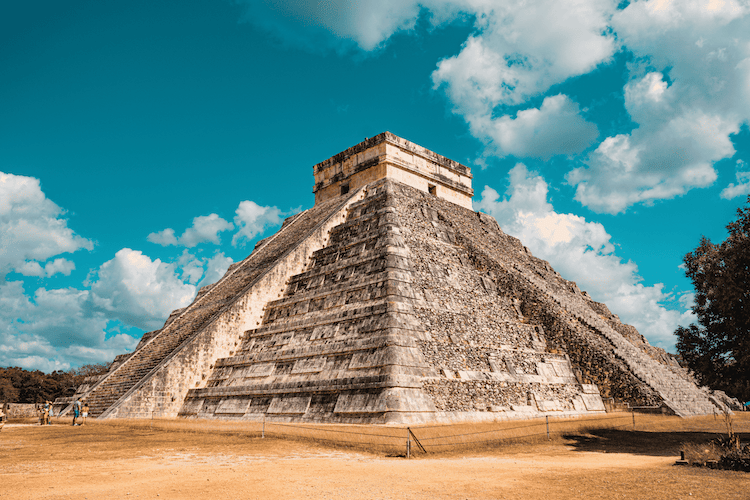
Magic Mushrooms of South and Central America
Magic Mushrooms of South and Central America
There are a ton of magic mushrooms throughout Central and South America. They are, in fact, part of the culture. In Mexico, magic mushrooms were introduced to the West when Gordon Wasson was given the first psilocybe mushrooms by Maria Sabina. Long before that, the Aztecs famously consumed shrooms, calling them “Teotlnanácatl,” meaning “The Food of the Gods.”
South America was where Terrance and Dennis Mckenna foraged mushrooms in the Amazon, which is allegedly where Penis Envy genetics originated. Paul Stamets, too has forged shrooms in South America.
The Americas are still a mecca for those seeking plant medicine, while the rest of the world cultivates the spores collected by many mycology expeditions, making many of these available today through trusted dispensaries.
Psilocybe Mexicana
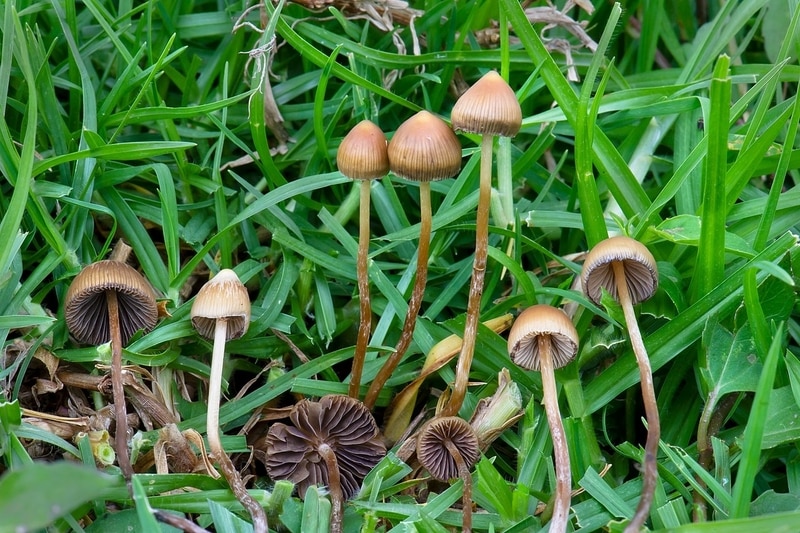
Psilocybe Mexicana may have first been used by the Aztecs throughout North and Central America over 2,000 years ago. This species was categorized by French botanist Roger Heim and is the species from which Dr. Albert Hofmann first isolated and named the compounds psilocybin and psilocin.
Cap is conic to bell-shaped, often with a slight central bump. The colour is brown or beige but develops gold caps in maturity, which easily bruise blue. The stem is slender, hollow, and straw colour to reddish-brown. Spores are dark purple-brown.
Psilocybe mexicana magic mushrooms grow alone or in clusters on moss along roadsides, trails, meadows, and cornfields, particularly in humid areas bordering deciduous forests. These shrooms have been found in Mexico, Costa Rica and Guatemala from May to October.
Effects vary, but mexicana has a reputation for spiritual experiences and mystical states.
Escondido Cubensis
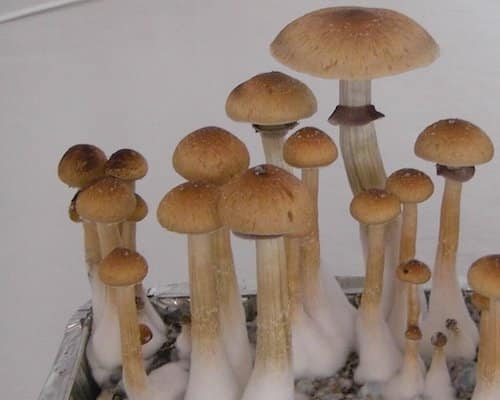
Escondido cubensis originates from the Puerto Escondido region in the Southern Mexican state of Oaxaca.
Escondido shrooms are characterized by gold caps and lighter-coloured stems. These magic mushrooms are fast colonizers which produce bountiful flushes of medium-sized fruits. Some growers report that the second and third flushes can be as dense and fruitful as the first.
Escondido effects are reported as average potency, with subjective effects including a mix of insights, feelings of unity, and bodily vibrations or tingling.
Psilocybe Columbiana
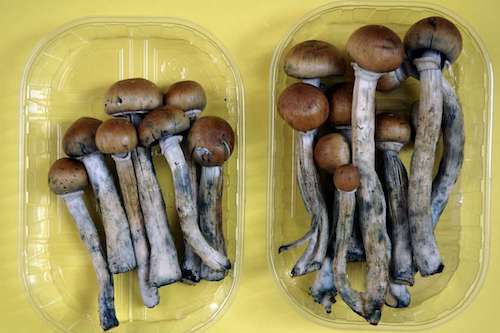
Psilocybe Columbiana, are a species of mushroom in the family Hymenogastraceae known only from the páramos of high mountains in Colombia. First found in the village of Villa de Lieva in the mountains of Columbia,
These shrooms are noted to be prolific producers of spores, with a pale yellowish cap that’s darker towards the central bump and slender, cylindrical stems.
Columbian effects of this strain are described as “sociable,” with a connection to those around you sparking conversation.
Puerto Rico Cubensis
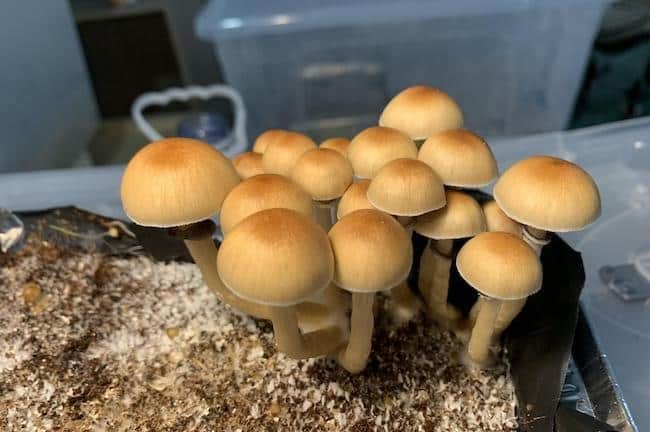
Puerto Rico Cubensis is a strain found on the island of Puerto Rico.
These mushrooms grow naturally in the warm, humid tropics and colonize quickly. Stems are thick in comparison to caps, which are typically bell-shaped and flatten later into maturity than other cubensis.
Puerto Rico effects are said to be average potency, this strain is noted to produce mental clarity, bodily stimulation, and feelings of euphoria.
Guadalajara Cubensis
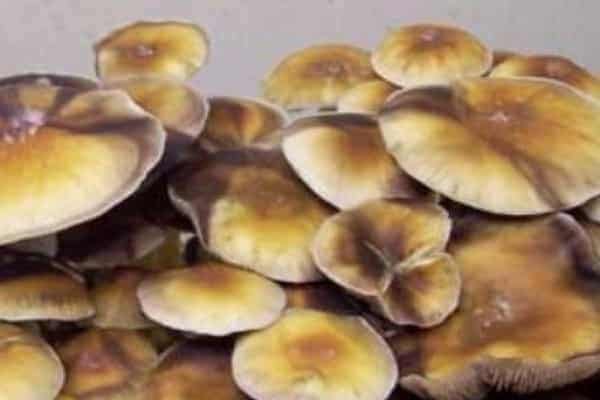
Guadalajara cubensis originate from the (you guessed it) Guadalajara region of western Mexico.
Caps are average size, golden to caramelish in colour, while stems are slender, white and slightly curved.
It is an aggressive colonizer and fruiter, with emphasis on its profound spiritual effects and even out-of-body experiences.
Argentinian Magic Mushrooms
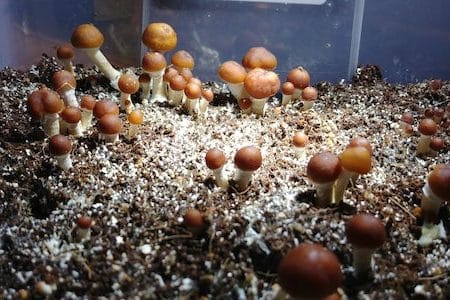
Argentinian magic mushrooms or Psilocybe collybioides are found deep in the rainforest of Argentina and were first described by mycologists Rolf Singer and Alexander H. Smith in 1958 after being collected near Tafí del Valle, Argentina.
Though possessing smaller fruiting bodies than cubensis, flushes are typically larger. Argentinian is revered by cultivators due to the massive production of purple-black spores and the ability to produce up to 10 flushes indoors! The caps are broad and caramel-coloured and medium-thick stems.
Argentinian effects are well-reviewed, with spiritual or mystical qualities, a sense of unity or deeper connection, and euphoria.
Peruvian Cubensis
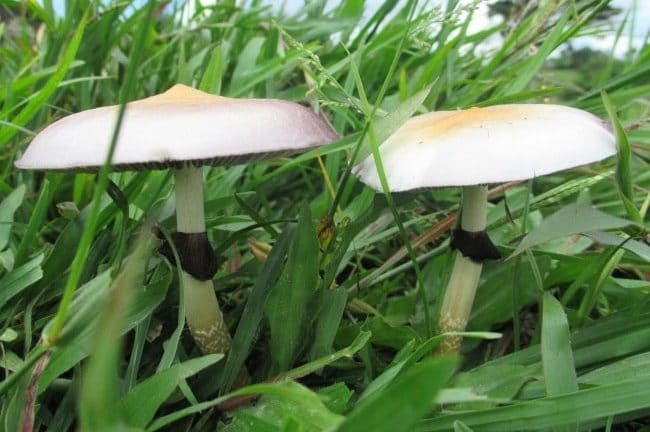
Peruvian cubensis was first discovered growing on cattle dung in the mist-covered livestock fields around lamas, where constantly alternating sunlight and rain create an ideal environment for the mushrooms to grow.
This species produces bountiful yields of dense patches with medium to large mushrooms. Stems are fairly thick, tan and darker towards the center, which may sometimes invert or split upon maturity. Spore production is heavy, and caps may become a discoloured purple-black. Though large yields can compensate for this,
Peruvian magic mushroom effects are regarded as typical, with light visuals, body load, and philosophical thoughts.
Palenque Cubensis
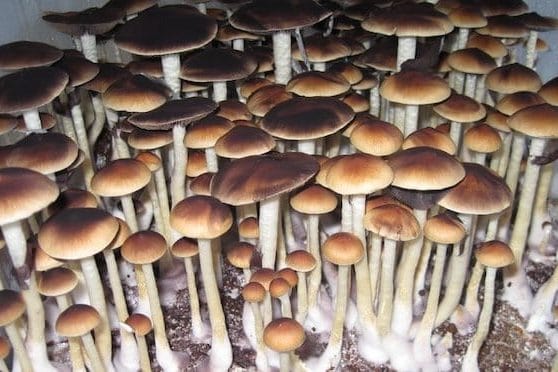
Palenque cubensis were discovered near the village of Palenque in Mexico,
Known for heavy spore production, this strain produces tall, slender mushrooms with triangular caps that range from caramel to brown, often darker towards the center, and slender, straight white stems. There is very little more to distinguish them from any other species.
Palenque effects are reported to be potent when fresh but lose potency rapidly when stored. When consumed fresh, Palenque cubensis induces vivid synesthesia, intense euphoria and bodily sensations.
Honduran Cubensis
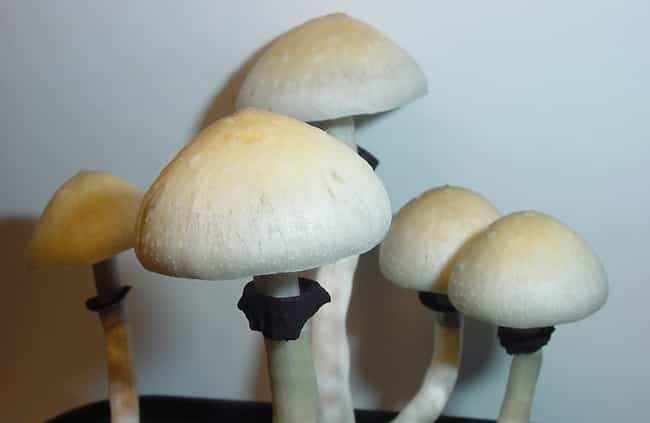
Honduran cubensis originates from the Bay Islands off the coast of Honduras.
These shrooms are resistant to both temperate fluctuation and contamination and are beginner-friendly species that is a prolific colonizer and fruiter. This species produces pointed caps, usually pale brown to light yellow in colour, with slender white stems that are usually curved.
Honduran cubensis effects are visual hallucinations, reflection, and body load.
Mazatepec Cubensis
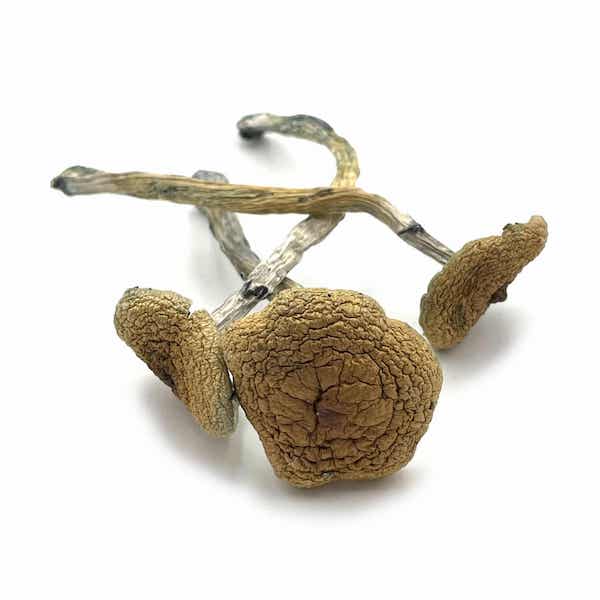
Mazatepec cubensis has deep roots in Mexican and Central American Indigenous history and has been used in religious ceremonies for thousands of years by the Mazatec people of Mexico.
Stems are slender and round, with bulbous, gold caps which may become discoloured to purple-black from heavy spore production. A unique feature of this strain is the caps stay partially closed in maturity.
Mazatepec effects are similar to the Hualta and other Mexican mushroom species, originating from the mountainous region of Mazatepec is known for eliciting spiritual type experiences.
Magic Mushrooms of Central and South America
This is a quick list for those looking for new strains to collect or grow and is by no means extensive. You can check out our magic mushroom species list for more. Or perhaps travel these distant lands to find your own – it’s hard to believe there aren’t more hidden in the Amazon or mountains.
Remember that any reports of psychedelic experiences are subjective and vary from person to person. Psilocybin is a powerful compound and likely is more affected by set and setting than specific mushroom species, although more research is needed in this area. Happy hunting!

Comments